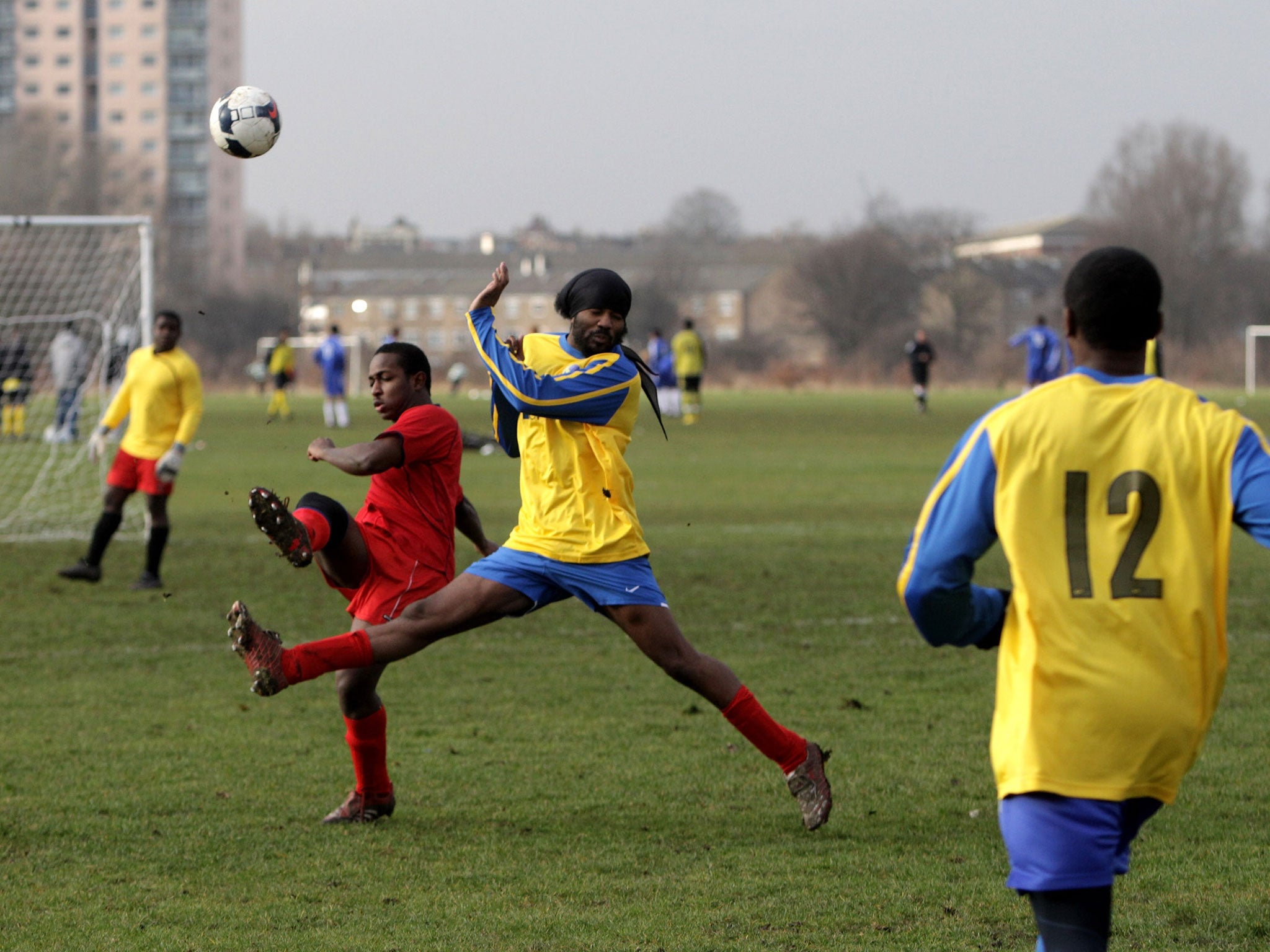Ashling O'Connor: Participation in football is suffering the effects of complacency at the top
Football has belatedly realised it must make it easy for youngsters to take part

Your support helps us to tell the story
From reproductive rights to climate change to Big Tech, The Independent is on the ground when the story is developing. Whether it's investigating the financials of Elon Musk's pro-Trump PAC or producing our latest documentary, 'The A Word', which shines a light on the American women fighting for reproductive rights, we know how important it is to parse out the facts from the messaging.
At such a critical moment in US history, we need reporters on the ground. Your donation allows us to keep sending journalists to speak to both sides of the story.
The Independent is trusted by Americans across the entire political spectrum. And unlike many other quality news outlets, we choose not to lock Americans out of our reporting and analysis with paywalls. We believe quality journalism should be available to everyone, paid for by those who can afford it.
Your support makes all the difference.Football is the national sport. Really? According to the latest participation statistics from Sport England, it is the fourth-most popular pastime, behind swimming, running and cycling.
Over the last 12 months, football has lost 290,000 adult participants (defined as 14 and over) who claim to play at least once a week. The decline to 1.83 million since October 2012, compared with 2.9 million for swimming and 2 million each for athletics/running and cycling, is alarming.
It is not a one-off but indicative of a trend. The drop in the first six months was blamed on one of the harshest winters for decades, which resulted in a mass of cancelled fixtures. But the fall in participation since April was 100,000, meaning football has a systemic problem, not a seasonal one. In 2005, the year London was awarded the Olympics, the total stood at 2.02 million. So what is going wrong?
Football has been guilty of breathtaking complacency. While the game at the elite end has exploded in popularity as an entertainment spectacle, the grass roots has been grossly underdeveloped.
Given how absolutely the Premier League dominates the sports pages, it has been easy for the guardians of the national game at the Football Association to think football must be so ingrained in our social heritage that people will always play it. After all, a ball, four jumpers and an open space is all you really need, right?
Well that might have worked as a strategy when there wasn’t much competition. Meanwhile, so-called minority sports such as cycling, struggling for the attention of sports editors until Britain started producing Olympic champions and Tour de France winners, were forced to devise vastly more creative ways to build a following.
Successful initiatives include group programmes such as women-only rides and guided rides, while the provision of more competitive races coincided with a time when doing a triathlon had become more of an expression of mid-life masculinity than buying a Ferrari.
During the last year, cycling added 137,000 participants; and since 2005 an additional 368,200 have taken it up regularly. This excludes bike commuters, so it really is about leisure choices for a time-pressed generation.
Who has time for 11-a-side these days? Beyond the professionals and Sunday League loyalists, fewer and fewer people, it seems.
The good news is that football has had its wake-up call. Sport England is threatening to withdraw up to 20 per cent of its public funding for the next three years unless the game stems the decline. Some might say the FA is rich enough not to care. Its national game budget is £44m a year compared with the £7.5m it receives from Sport England.
But £4.5m, the amount that could be withdrawn, is still significant even for football. So, under the leadership of Pete Ackerley, the FA is working to reverse the downward trend. He claims that the programmes he is putting in place will yield results once they are scaled up. These include Mash Up, an after-school freestyle session aimed at 14- to 17-year-olds, Team Nineteen, a college-based league programme led by students, and Just Play, a turn-up-and-play kick-about.
Once the investment kicks in, Ackerley believes he will hit his 2017 target of 1.2 million 14- to 25-year-olds playing at least once a week. The current figure is 987,400, well short of the target of 1.14 million.
Football has belatedly realised what many other sports did long ago: it needs to work for the attention of young people by making it easy for them to take part. Ideally, take it to them – the Doorstep Clubs organised by Street Games are proving popular.
Sport also needs to fit around family life, not the other way round. The disciplines that are showing growth are responding to these demands.
Maybe we don’t need to play as much football as we used to – the sports market is broader to account for more diverse interests and that is a good thing. But if we want a successful England team, we should worry about our young people falling out of love with the playing of the game.
Those teenagers who fall out of the habit of playing football will have kids of their own and will be less likely to introduce them to a game they care little about accommodating in their lives. Perhaps they’ll just take them out on their bikes.
Left unchecked, this grass-roots deterioration will impact on the quality of future England senior teams because the base of the pyramid feeds the apex.
And that makes this data more worrying than the apparent fixation with the number of foreigners playing in the domestic league.
Join our commenting forum
Join thought-provoking conversations, follow other Independent readers and see their replies
Comments